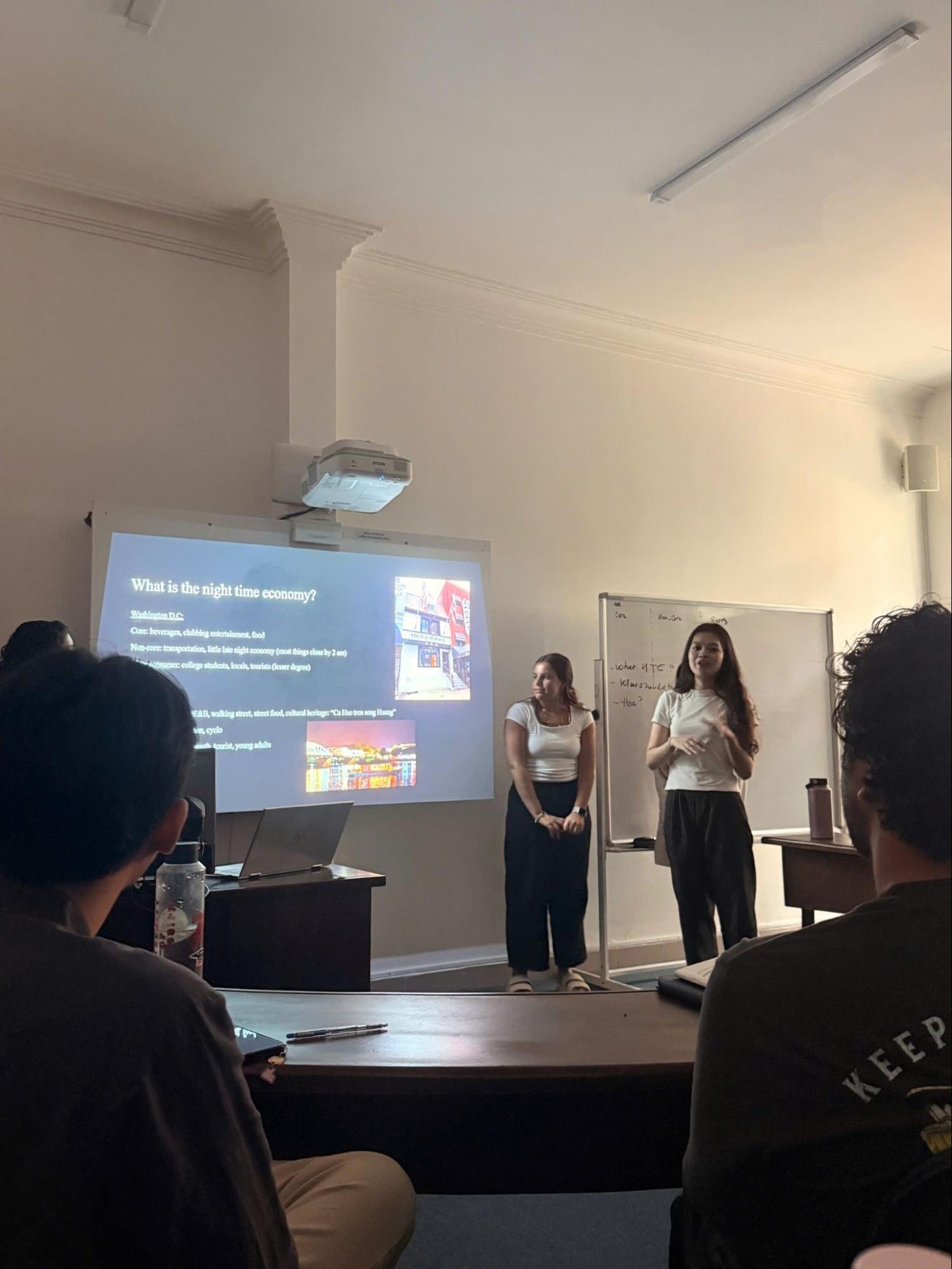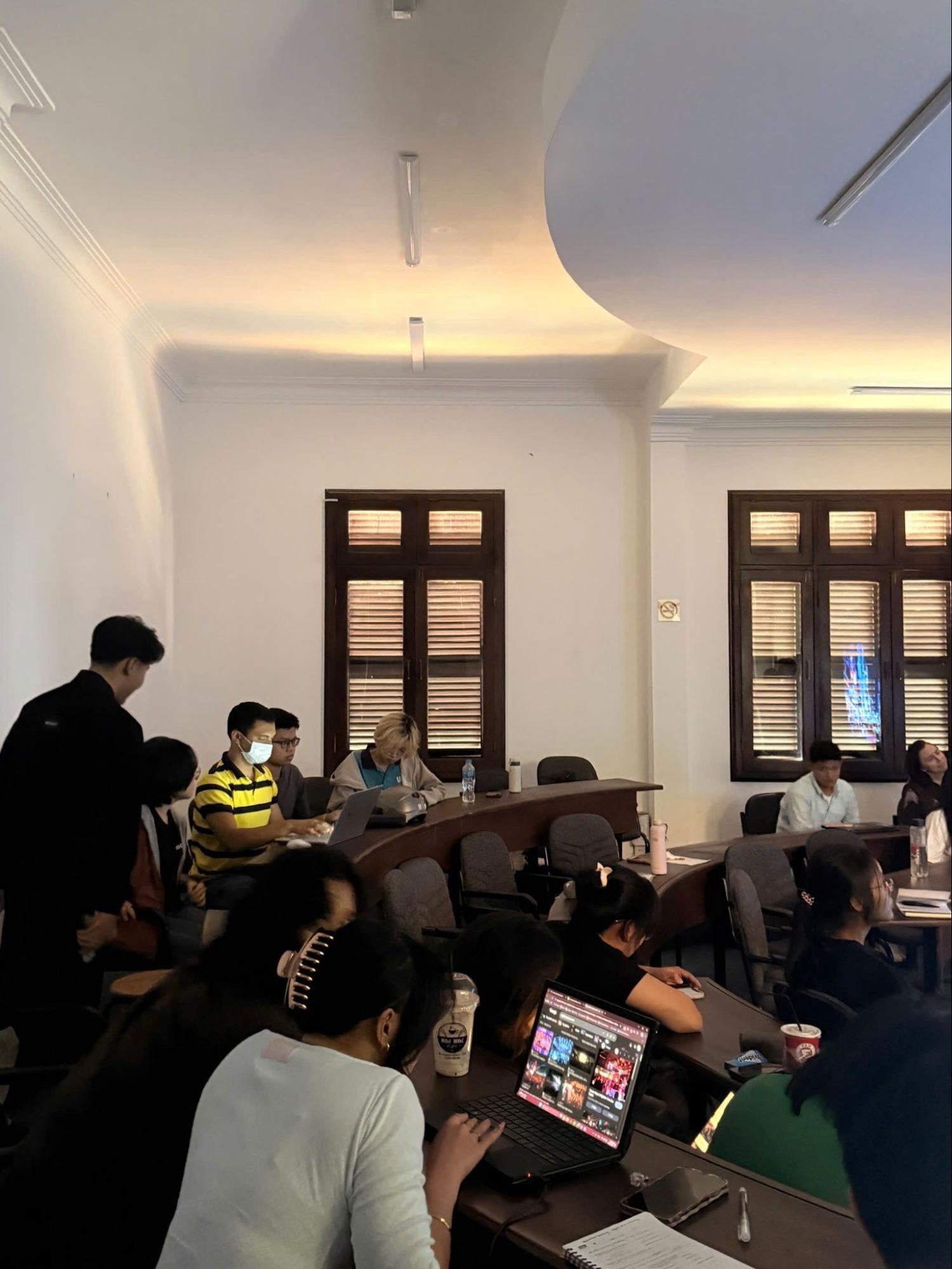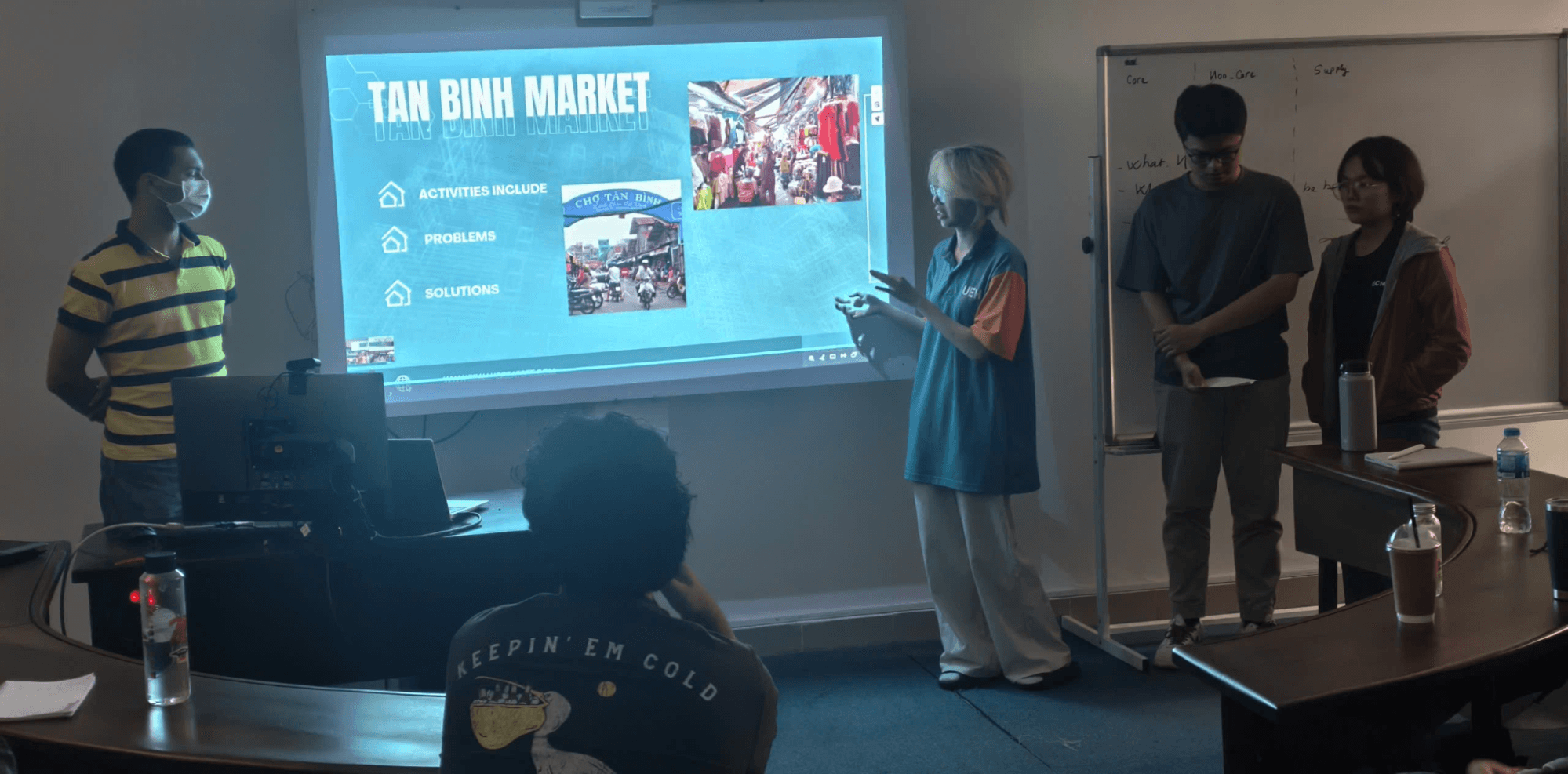Night Market – Night-time Economy: Advancing Interdisciplinary Urban Insights
The night-time economy has become an increasingly important component of contemporary urban development strategies, particularly in major cities where living, consumption, and entertainment activities continue beyond traditional business hours. Beyond commercial and service activities such as food services, night markets, arts, and tourism, the night-time economy also encompasses essential services including healthcare, libraries, logistics, and public transportation. Collectively, these components contribute to enhancing tourism appeal, generating employment, fostering cultural exchange, and improving the overall quality of urban life.
In the context of Vietnam, and Ho Chi Minh City in particular, which is striving to become an innovative, dynamic, and sustainable metropolis while serving as the country’s leading economic and tourism hub, the study and effective utilization of night-time economic potential is increasingly necessary. Responding to this need, the Institute of Smart City and Management (ISCM), University of Economics HCMC (UEH) collaborated with the School for International Training (SIT), United States, to organize an academic seminar titled “Night Market – Night-time Economy,” aiming to create a platform for interdisciplinary exchange among students and experts from both countries.
Before the seminar, SIT students visited UEH Campus V to explore the learning environment, interdisciplinary training model, and research activities conducted at ISCM.
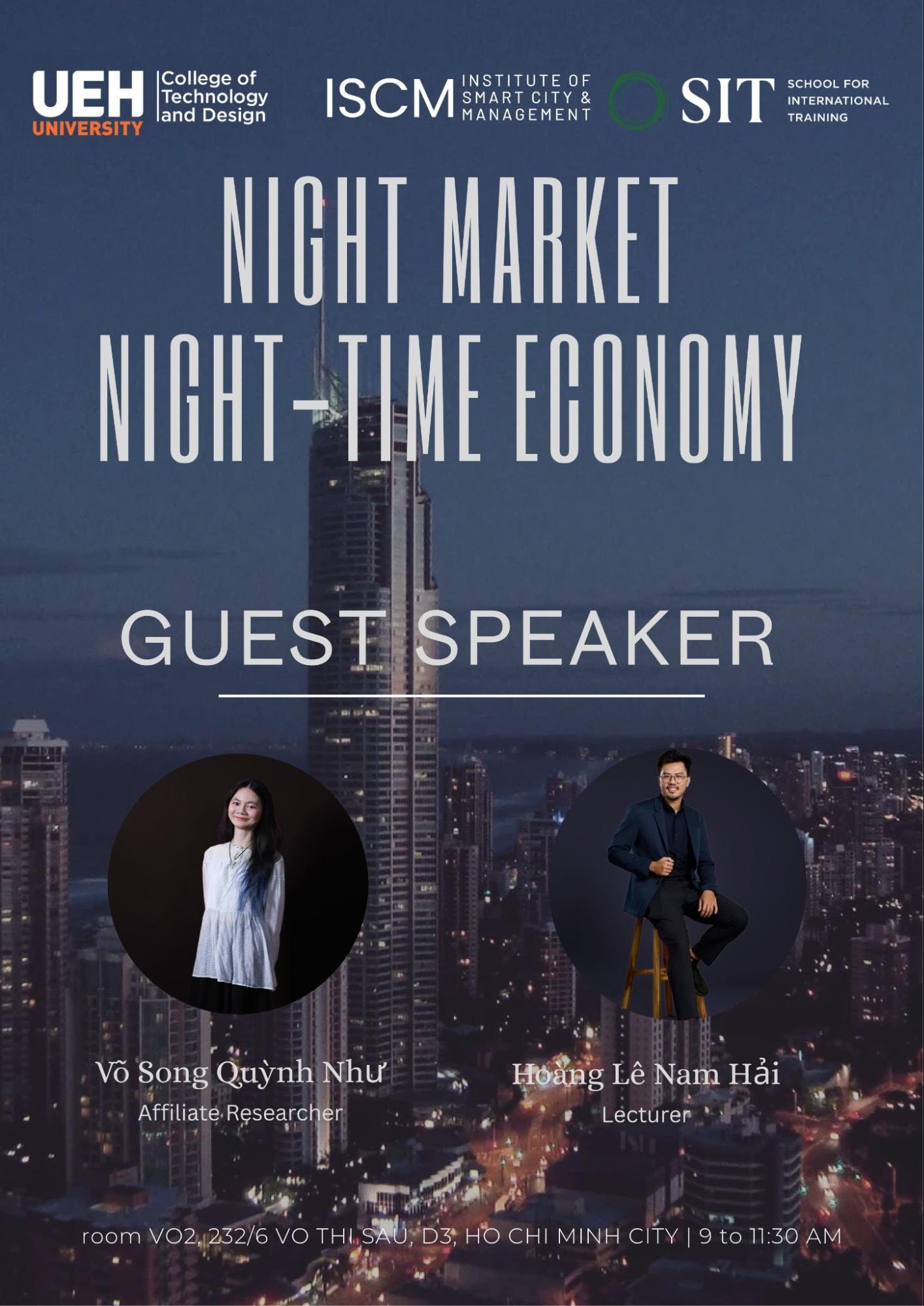
During the seminar, Vo Song Quynh Nhu, representing Xuan Hoa Ward, presented an overview of Ho Chi Minh City’s night-time economy policies, analyzing the city’s potential, strategic orientations, and the role of night markets within the urban economic structure. The presentation also introduced international night-time economy models and highlighted lessons that may be applicable to the Vietnamese context. Through comparative analysis, Quynh Nhu identified the city’s strengths and limitations and proposed recommendations for promoting more sustainable night-time economic development.
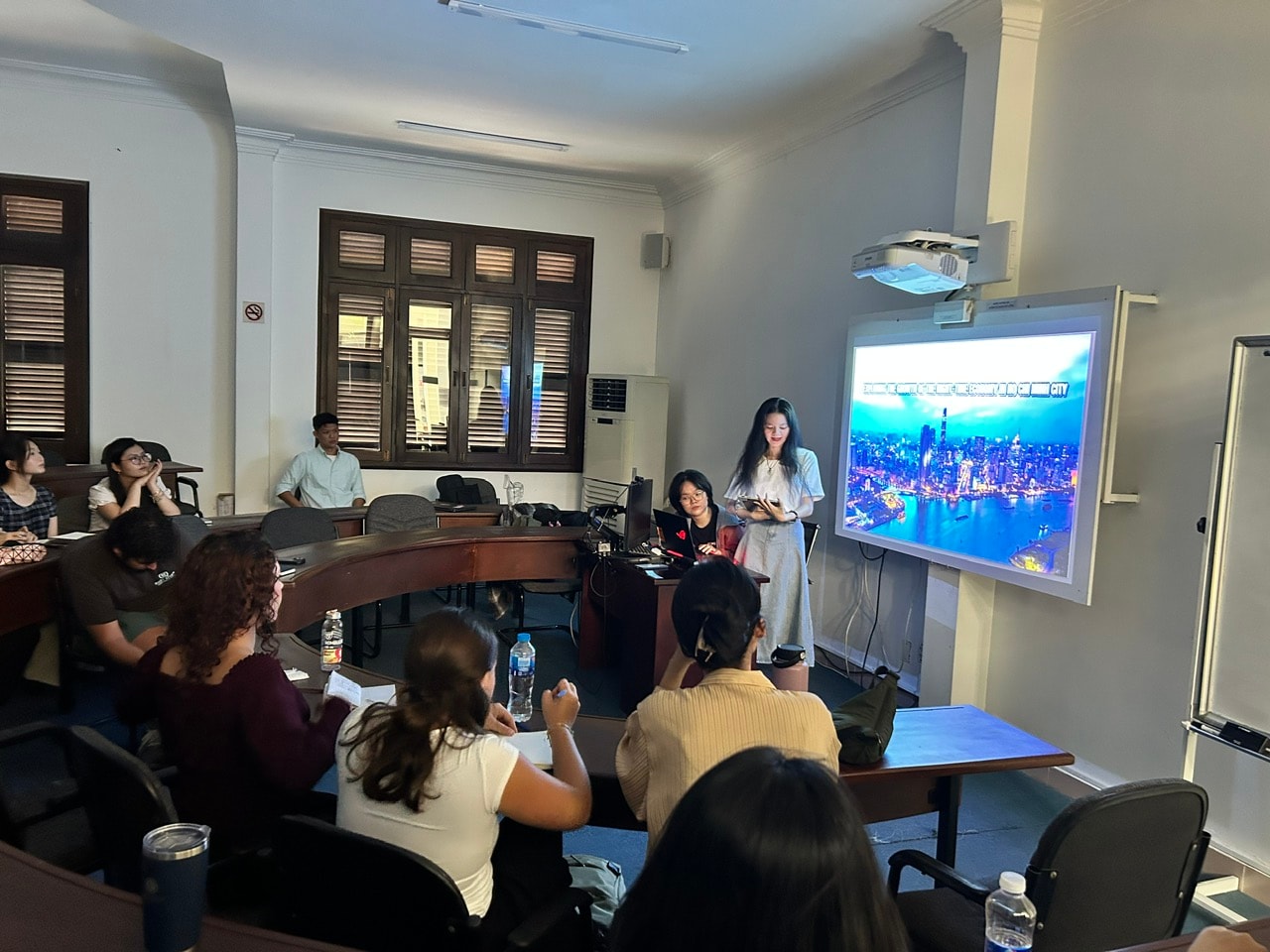
Following this, MSc. Hoang Le Nam Hai from ISCM presented research on a “Decentralized Community Platform for Night-time Economy Development.” The presentation focused on digital solutions for building smart urban management ecosystems, particularly data-integrated platforms that enhance community participation and improve coordination among local government, businesses, investors, residents, and visitors.
In the group discussion session, students were divided into interdisciplinary teams to analyze and compare night-time economy models in Vietnam and the United States. Case studies included Tan Binh Market and Quy Nhon Night Market compared with Washington, D.C. and New York City. While Tan Binh Market represents traditional commercial exchanges and Quy Nhon Night Market reflects tourism and local culinary culture, Washington, D.C.’s night-time economy emphasizes cultural and artistic activities, and New York City exemplifies a 24-hour service and entertainment ecosystem.
Despite the limited duration, the seminar took place in an open and engaging atmosphere, demonstrating the strong interest of students from both countries in the topic of night-time economy and urban development. Numerous questions, critical perspectives, and practical insights were shared, showcasing interdisciplinary engagement and independent thinking. Beyond academic enrichment, the event also provided opportunities for students to strengthen international communication skills, intercultural collaboration, and the application of knowledge to real-world sustainable urban development issues.
Below are several photos capturing student activities during the seminar.
